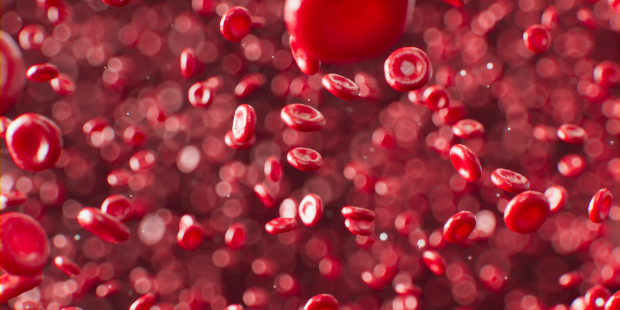What is the risk of HIV being passed on when you’re undetectable?
Our message is clear. People on effective HIV treatment cannot pass on the virus.
That’s because HIV medication (antiretroviral treatment, or ART) works by reducing the amount of the virus in the blood to ‘undetectable’ levels. This means the levels of HIV are so low that the virus cannot be passed on. This is called having an ‘undetectable viral load’.
It can take up to six months for some people to become undetectable from when they start treatment.

What is ‘effective treatment’?
We are using the term ‘effective treatment’ to mean that someone is on treatment, taking it as prescribed and has what we call an ‘undetectable viral load’. In the UK this is usually classed as a viral load below 20 copies/ml.
The Partners PrEP study found that there remains a transmission risk within the first six months of treatment as the HIV positive partner’s viral load takes time to come down.
Therefore ‘effective treatment’ means someone has been taking it as prescribed for at least six months and has an undetectable viral load.
Over 90% of people diagnosed with HIV in the UK are on effective treatment and ‘undetectable’, and therefore they are not infectious.
What is the evidence for this?
Scientific evidence has been building over the last 20 years that demonstrates that the likelihood of HIV transmission is mostly determined by ‘viral load’ (the amount of the virus in the blood or genital tract).
Then, with the publication of the PARTNER study findings in July 2016, we now know enough to be more definitive.
The PARTNER study looked at 888 gay and straight couples (and 58,000 sex acts) where one partner was HIV positive and on effective treatment and one was HIV negative. Results found that where the HIV positive partner had an undetectable viral load, there were no cases of HIV transmission, whether they had anal or vaginal sex without a condom. The PARTNER study looked at couples where the HIV positive partner had a viral load below 200. An undetectable viral load is usually classed as being below 20 copies/ml in the UK.
This is the most robust evidence to date and gives us the evidence we need to say, with confidence, that people on effective treatment cannot pass on HIV.
How sure can we be?
At Terrence Higgins Trust the quality of our health promotion material is very important to us and we do not come to our medical positions lightly. We are members of the Information Standard and ensure that all health information is evidence based, peer-reviewed and user-tested.
With any scientific study, it is impossible to conduct the research on everybody and therefore a randomised representative sample is studied. The larger the sample size the more likely the results of the study reflect what would happen in real life.
Therefore there has to come a point where we assess the scientific evidence and clinical experience and judge that we know enough to draw a definitive conclusion. In this case, the PARTNER study is large and robust enough that there is now growing consensus among the HIV community that if someone is on effective HIV treatment they cannot pass on HIV. It can take up to six months for some people to become undetectable from when they start treatment.
This has been confirmed by the Chief Medical Officer in England, as well as the principal investigators of each of the leading studies that examined this issue, and 240 HIV organisations across the world.
Is this a cure for HIV?
Being ‘undetectable’ is not a cure as the virus is still present. But effective treatment does mean that you can have a normal life expectancy and cannot pass on the virus to others, so it means there is no reason why HIV should stop you living, working, dating or starting a family as with anyone else.
How variable is an ‘undetectable’ viral load? Can this change over time?
HIV specialists have decades of experience managing antiretroviral therapy and we are confident that if someone is taking their medication every day as prescribed, and they are having their viral load checked regularly, they will remain uninfectious.
The presence of other sexually transmitted infections (STIs) can potentially affect viral load, but in the PARTNER study there were no HIV transmissions even when other STIs were present.
It is, however, important to remember that HIV treatment can only be successful if you have access to it and are taking it as prescribed.
Stigma can be a barrier to people accessing treatment, and that’s why this message is so important: it will help encourage adherence to medication. We know that if you take effective HIV treatment as prescribed and have an undetectable viral load, you cannot pass on HIV.
If someone’s ability to take their tablets every day changes for any reason (for example due to changes to circumstances or lifestyle) this of course no longer applies and there could be a risk of transmission.
We would always advise that if you are having any problems taking your medication, for any reason, then you discuss that as soon as possible with your HIV doctor or nurses.
Why are we getting this message out?
The fact that being on effective HIV treatment prevents you from passing on the virus is one of the biggest developments to our knowledge of HIV for over 20 years. As the UK’s leading HIV and sexual health charity, it is vital for us to share this for two reasons.
Firstly, to dispel the stigma, discrimination and myths that so many people living with HIV face on a daily basis. People living with HIV are often ostracised and discriminated against, even by their employers and healthcare professionals, for fear that they are infectious. If everybody knew that people on effective HIV treatment cannot pass on the virus, we could end this stigma.
Secondly, sharing this message will bring down HIV transmissions by encouraging more people to test for HIV and to accept treatment. We know many people still avoid getting tested for fear of the result and because of misconceptions about what the virus means – for example in terms of their health, relationships, employment and family life.
The knowledge that getting on to treatment means you can live a long healthy life without fear of passing on the virus will reduce these barriers. The more people who are encouraged to get tested and onto effective HIV treatment, the fewer HIV infections will happen. This is already being seen in the significant reductions in HIV diagnoses in London sexual health clinics and across all clinics in England.
Does this message promote condomless sex?
In our experience, being ‘undetectable’ does not mean people completely stop using condoms. While being on effective treatment means you cannot pass on HIV, condoms are of course the best way to prevent other STIs and remain, for many people, their preferred way to prevent HIV transmission.
In fact, our service users often tell us that being uninfectious makes it easier for them to have open discussions with new partners about their HIV status and talk about sexual health more generally. What this knowledge does do is to give confidence to people living with HIV who want to date, start a family and have a happy, healthy sex life without fear of passing HIV on to their partners.
If the person living with HIV is on effective treatment and has an undetectable viral load, and both partners have had full sexual health screenings to check for other STIs, as with any other couple, there is no reason they need to continue using condoms if they do not wish to. However, before deciding to stop using condoms, it is a good idea to speak to your HIV doctor or nurse to make sure your viral load is undetectable.




